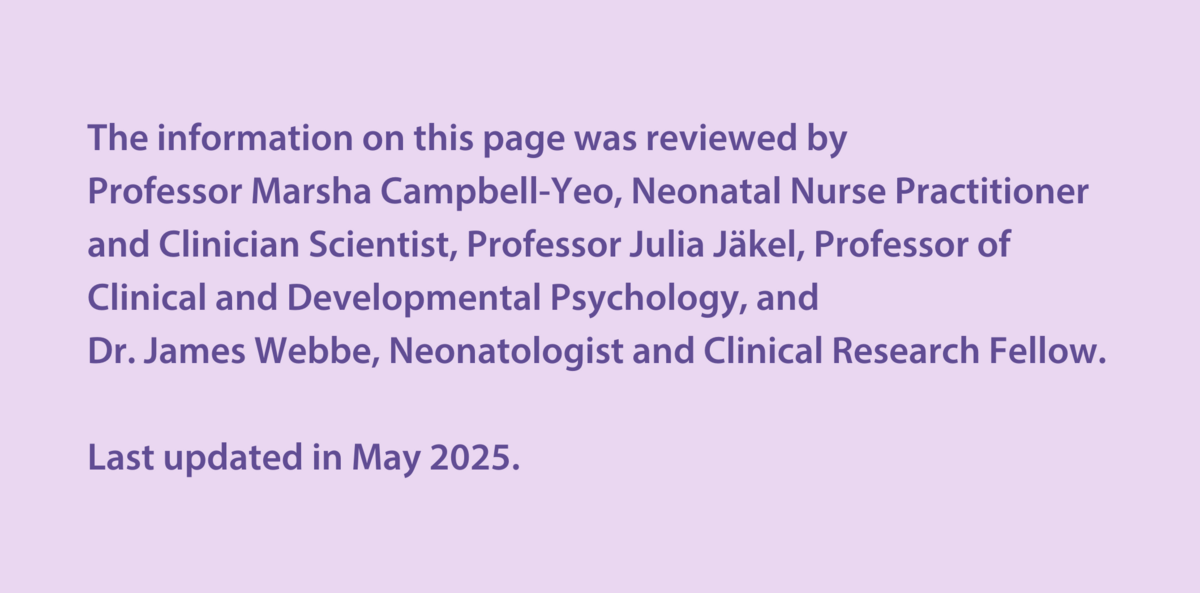If your baby was born preterm or is sick, it is important to understand how immunizations can help protect their health. While immunizations are important for all babies, preterm or sick babies are more at risk of infections because their immune system is immature. Full-term born babies get most of their antibodies⍰ from their mother in the last trimester⍰ of pregnancy, but preterm babies may have received fewer, which makes them more vulnerable. For this reason, it is important not to delay regular immunizations.
If you have concerns or questions, talk to your healthcare provider. Depending on your baby’s health, they may also need extra immunizations, like those for flu⍰ or respiratory syncytial virus (RSV)⍰. Your healthcare provider will tell you what is best for your baby.
A note on immunization
Some people have concerns about vaccines because of fears and misunderstandings. They might worry about whether vaccines are safe for mothers and babies. These concerns can come from past bad experiences in medical care systems or from cultural beliefs. Because of this, more people are becoming unsure about vaccinating pregnant women and babies or older children.
For up-to-date and reliable information, the WHO is a trusted source.
Pregnant women and parents should always follow local health guidelines on vaccinations⍰ for themselves and their babies. Local recommendations are designed to protect the health of the individuals and the community, and to provide the best care based on the latest research.

